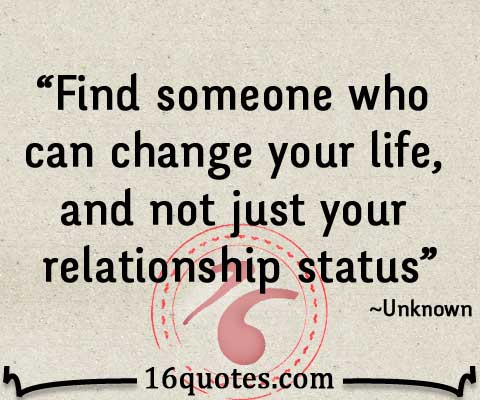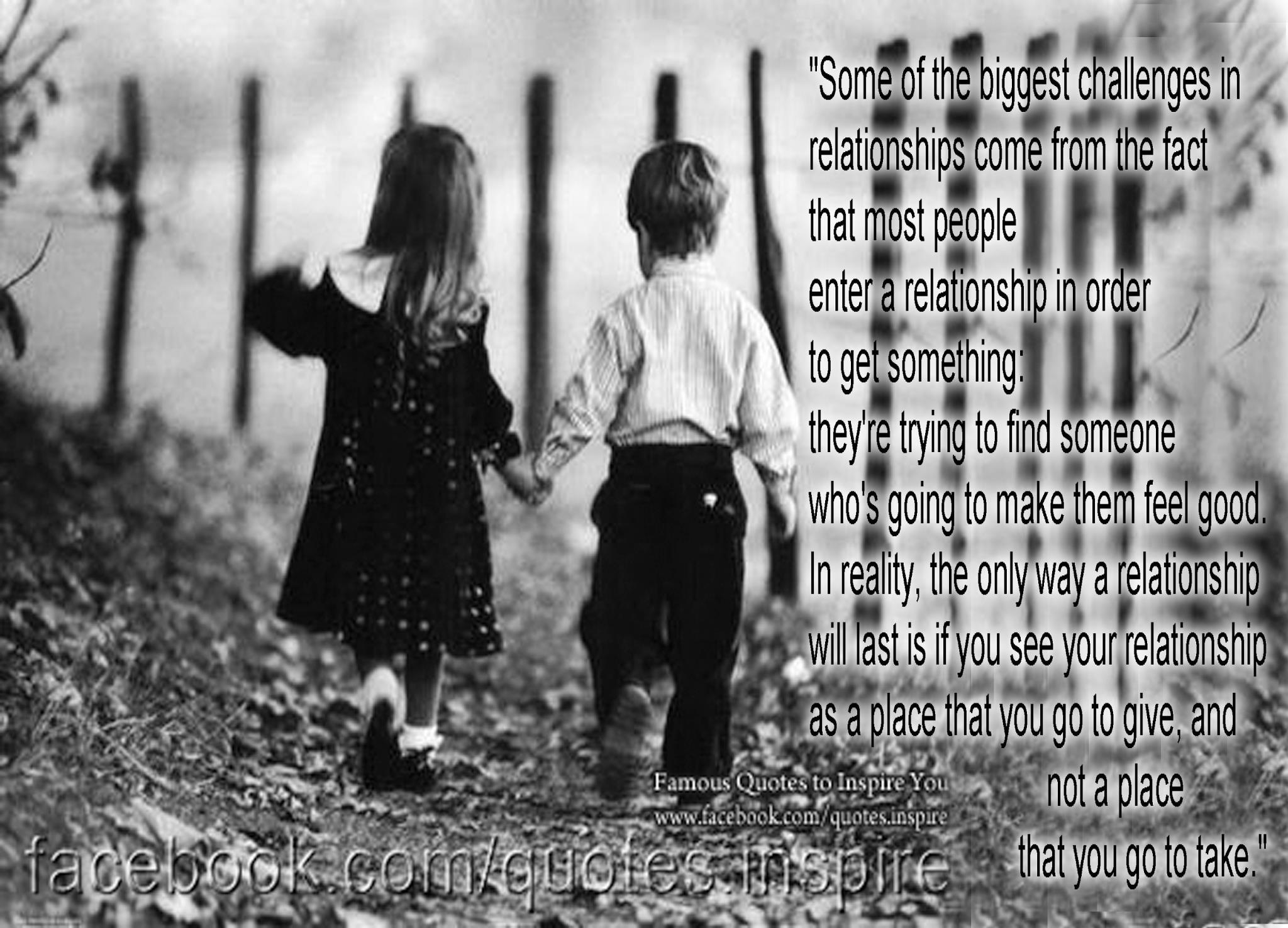
Find relationship
Автор: Kara Foell 18.12.2018How to Find a Relationship

❤️ : Find relationship
Build trust by sharing your vulnerabilities in small doses. It will be a wonderful experience for you to explore each site and find the treasure and the people you want to connect to online dating and friendship. Tip 7: Nurture your budding relationship Finding the right person is just the beginning of the journey, not the destination. Wants include things like occupation, intellect, and physical attributes such as height, weight, and hair color.

Fact: While there are health benefits that come with being in a solid relationship, many people can be just as happy and fulfilled without being part of a couple. And nothing is as unhealthy and dispiriting as being in a bad relationship. Photos can be , opening lines can fall flat, and in-person meetings—when they finally happen—are just as likely to be a letdown as they are to be fun and exciting.

Get Started Today! - Don't expect to change your partner. Stand your ground if someone violates these boundaries.

When you see the green expert checkmark on a wikiHow article, you know that the article has received careful review by a qualified expert. If you are on a medical article, that means that an actual doctor, nurse or other medical professional from our medical review board reviewed and approved it. Similarly, veterinarians review our pet articles, lawyers review our legal articles, and other experts review articles based on their specific areas of expertise. How to Get in a Relationship Long-lasting romantic relationships can be one of the most fulfilling aspects of life, giving us the opportunity to grow and share our journey with someone. That said, it almost always takes time and effort to find the right person at the right time, and to get that relationship off the ground. Knowing what you want, respecting yourself, and keeping a positive attitude are as important in finding a partner as they are in keeping one. Learn about what makes a relationship healthy. Recognizing healthy versus unhealthy relationship dynamics can be difficult, especially if you've grown up around unhealthy relationships. Fortunately, you can find a lot of information online about healthy relationships. Use this knowledge to create healthy boundaries for yourself before you seek a relationship. Stand your ground if someone violates these boundaries. Lots of problems can occur in relationships if you don't have adequate love and for yourself first. These are also things that can be easily damaged by failed past relationships, unaddressed wounds from childhood, etc. When you learn to practice these things, you'll also learn to love, accept, and forgive your partner. This is crucial for avoiding potentially abusive relationships. Deal with the past. The last thing you want in your new relationship is an unsettled issue from a previous relationship or marriage. Working through the reasons why your last relationship was unsuccessful can also help you avoid repeating the same mistakes. If you feel incapable of intimacy or unable to maintain a long-lasting relationship, know that you can always change that with time and the right amount of guidance. Don't enter a relationship just for the sake of a relationship. Social pressures sometimes make us feel as though we need to be in a relationship at any cost. This is a myth. Remember that no relationship is better than a bad relationship. Make sure your interest in your potential partner is genuine. Know that attraction can build over time. Love at first sight is a nice idea, but is not the case for many relationships. If you aren't instantly attracted to someone, it doesn't mean that they are a bad choice for you: lasting love is something that grows over time, and friends can turn into lovers. When considering potential partners, do not get overly obsessed with their appearance. Personal qualities like kindness, humor, and curiosity count for a lot more in the long run, and you may find yourself very attracted to this person as a result. Don't expect to change your partner. It's easy to overlook certain things you don't like at the beginning with the thought that you'll eventually get this person to change. However, people can only change themselves, if and when they want to. If there's something you think you really can't accept long-term, think twice about getting into the relationship. It's okay to grow together, but neither of you should be changing for the other person. Don't get hung up on small things. While certain patterns such as drinking, abuse, or irresponsible behavior may be clearly unacceptable, there could be other, smaller things that get under your skin, like chewing with their mouth open, questionable fashion choices, or different taste in music. If this is a person you're really interested in, don't let these become an excuse to avoid intimacy. Find out where to go to meet people with similar interests. If you've been having trouble meeting someone, make a list of the things you like doing. Mutual interests can be a great boon to your relationship. Check offerings at a local college or community center. Cooking, languages, or art classes are fulfilling on their own, and can be a good social opportunity as well. Take dating services with a grain of salt. For some people, Internet dating may work well, while others might find them too high-pressure or lacking in spontaneity. If you do opt for online dating, remember: despite formulae allegedly created to find your perfect match, it takes a long time to get to know someone, and that needs to happen in person. Meet people through shared connections. You might meet the perfect partner through your friends, relatives, neighbors, or coworkers. Be open to meeting new people, and attend events you're invited to. If you see someone who catches your interest, talk to them or ask your shared connection to put you in contact with them. Make a casual date. If you've met someone of interest, feel free to make the first move and invite them for a no-pressure activity. Going out for coffee is almost always a viable option. Other choices may depend on how you've met: for example, if you're both in the trail club, you could invite the person on a hike with a few of your friends. If you both like music, see if they'd like to go to a concert. This gives both of you a certain assurance that you can get to know each other in a safe, neutral environment. Learn to accept rejection. Rejection is an inherent part of the dating process, and you'll need to learn how to handle it in a positive way. People have all kinds of reasons for not wanting to be in a relationship, and for the most part you don't have control over that. If you've been rejected several times, take a step back and ask if there's something in your approach that may need to be changed. Perhaps you're moving too fast, or choosing to date people who don't actually share any of your interests. In any case, don't dwell on rejection: keep a positive attitude, and move on. Some rejections can be particularly difficult. If you're feeling sad or angry, acknowledge these feelings rather than suppressing them. This will help you move on more quickly and completely. Avoid sex early in the dating process. Sharing your most intimate behavior with someone you've just met can throw off the pacing of your budding relationship. If you like this person, chances are there are going to be emotions connected to sex that the two of you are not ready to handle yet. What's more, one or both of you might not take responsible actions regarding issues like STIs or pregnancy prevention. Worse still, the other person might just disappear afterwards! Make it clear that your wanting to hold off isn't a rejection, but rather precisely because you like them and want to wait until the moment is right. If they don't understand this, put some distance between you: this could be a red flag that they are possessive or potentially abusive. It's always a red flag when someone doesn't respect your boundaries. Check out how you both behave around the other's friends and family. As the dating process moves on, you'll probably meet some of the people close to them, and they'll meet yours. See how comfortable the two of you are in those situations: this can be a clue as to how the relationship is going. That's okay - the main thing is that you're making the effort to spend time and connect with each other's loved ones. Maintain your ties with family and friends. Some new relationships can seem all-consuming, but resist the urge to drop off the face of the Earth with your new love interest. Make it a point to stay in touch with your friends and family, taking time to call and see them regularly. Don't forget that romance comes and goes, but these are the people who'll be there for you in the long run. Watch out for red flags. There are some signs that the relationship is not headed in a healthy direction. Learn to listen to your gut, paying attention to how the other person makes you feel. If you feel undervalued, insecure, or ashamed, it's better to end the relationship early and invest your time in search of something long-lasting. Find things to do together. When the initial excitement of your romance has faded a little, you'll both need to commit to spending time together and investing in the relationship. Discuss what you both like doing and make a plan to do fun things on a regular basis, no matter how busy you are. Build trust by sharing your vulnerabilities in small doses. It takes time to build trust in a relationship. Being vulnerable around the other person can create trust, but you shouldn't do it all at once. Instead, each of you should share small parts of yourself with the other. Over time, this creates a deep, trusting connection. Over time, you can provide more details about why you've not gotten along. However, you wouldn't want to explain a lifetime of grievances when you've just started dating. While it may be tricky to balance relationship and self-realization, the latter is in fact very important to your love life. Mutual independence means you both continue to grow as individuals, doing what you love. This not only helps stave off unhealthy relationship patterns like codependency when one of you depends on the other for your self-worth and identity ; it can also be stimulating and renewing by allowing you to see each other do what you love and are good at.
MANIFEST LOVE & ATTRACT A RELATIONSHIP w/ LAW OF ATTRACTION
Learning to step back a little gives intimacy time to grow. The key is to accept that rejection is an inevitable part of dating but to not spend too much time worrying about it. Most importantly, the health of your relationship is valued by every counselor you will find find relationship we want to help you find the joy of a deeply meaningful relationship. Allison Cohen, MFT, psychotherapist, California. If you've met someone of interest, feel free to make the first move and invite them for a no-pressure tout. Myth: True love is constant or Physical attraction fades over time.

